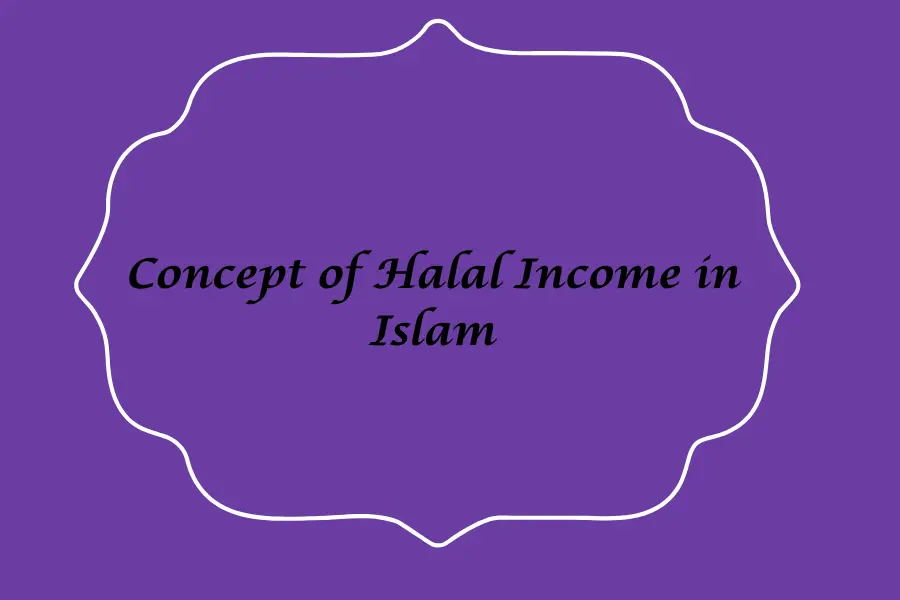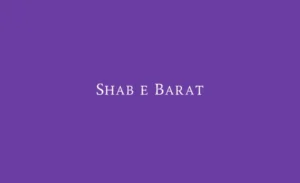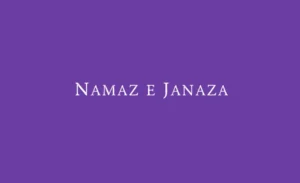In Islam, wealth and income are not just material possessions, they are a trust (amānah) from Allah ﷻ. Every Muslim is encouraged to seek livelihood with honesty, hard work, and integrity, ensuring that every dirham or rupee earned is halāl (lawful and pure). The concept of halal income forms the very foundation of a believer’s financial and spiritual life. It represents money earned through lawful means, free from riba (interest or usury), gharar (uncertainty), maysir (gambling), deception, or involvement in harām (prohibited) industries such as alcohol, pork, or unethical trade.
In today’s rapidly globalizing economy, Muslims across the world face increasing challenges in identifying Shariah-compliant income sources and understanding the principles of Islamic finance. From banking and investments to employment and entrepreneurship, Islam provides a complete framework that distinguishes between halal and haram earnings, not just to ensure financial fairness, but also to protect one’s spiritual integrity. Earning halal rizq (lawful sustenance) purifies the heart, brings barakah (divine blessing), and strengthens one’s connection with the Creator.
The Qur’an and Sunnah repeatedly emphasize that halal income is directly linked to the acceptance of our prayers and acts of worship. As the Prophet Muhammad ﷺ said:
“Seeking lawful (halal) sustenance is an obligation after the obligation.” – (Bayhaqi, Shu’ab al-Iman)
This means that after performing obligatory acts such as prayer and fasting, a Muslim’s duty continues in seeking pure and permissible means of livelihood. Islam does not reject wealth, it rejects injustice, exploitation, and greed. A person who earns ethically and spends responsibly contributes not only to personal prosperity but also to social justice and economic balance in the community.
What Makes Income Halal vs Haram – A Clear Breakdown
In Islam, the difference between halal (lawful) and haram (forbidden) income lies not in how much one earns but how that income is earned. A believer’s financial success is measured by purity and ethics, not volume or wealth accumulation. The Qur’an and Sunnah teach that wealth obtained through prohibited means becomes a barrier between a servant and Allah’s mercy, no matter how impressive it appears on the surface.
Earning halal rizq (lawful sustenance) is a form of worship. It reflects obedience, honesty, and gratitude toward Allah ﷻ. Conversely, haram income, even if small, corrupts the soul, removes barakah (blessing), and can invalidate acts of worship, charity, and duʿā (supplication). Therefore, understanding the distinction between halal and haram earnings is essential for every Muslim who wishes to live righteously and prosper in both this life and the Hereafter.
| The Core Difference Between Halal and Haram Income | ||
| Aspect | Halal Income (Lawful) | Haram Income (Unlawful) |
| Source | Earned from lawful, ethical, and productive work or business | Earned through prohibited means such as riba (interest), gambling, or fraud |
| Method | Transparent, honest, and Shariah-compliant transactions | Based on deceit, exploitation, or forbidden industries |
| Spiritual Value | Brings barakah, nourishes the soul, and leads to Allah’s pleasure | Destroys blessings, hardens the heart, and invites Allah’s anger |
| Outcome | Purifies wealth and supports acceptance of worship | Pollutes the heart and prevents duʿā and ṣalāh from being accepted |
Key Principles That Define Halal Income
Below are some important and key principles that define halal income in detail:
1. Prohibition of Riba (Interest or Usury)
One of the most critical prohibitions in Islamic finance is riba, or interest. Islam strictly forbids any guaranteed profit on loans, as it leads to exploitation, economic injustice, and concentration of wealth among the rich.
Qur’anic Reference Surah Al-Baqarah (2:275):
Arabic: الَّذِينَ يَأْكُلُونَ الرِّبَا لَا يَقُومُونَ إِلَّا كَمَا يَقُومُ الَّذِي يَتَخَبَّطُهُ الشَّيْطَانُ مِنَ الْمَسِّ
Transliteration: Alladhīna ya’kulūna ar-ribā lā yaqūmūna illā kamā yaqūmu alladhī yatakhabbaṭuhu ash-shayṭānu mina al-mass…
Translation: “Those who consume interest will not stand [on the Day of Resurrection] except as one stands who is being beaten by Satan into madness.” (Surah Al-Baqarah 2:275)
Islamic finance instead promotes risk-sharing models such as Mudarabah (profit-sharing) and Musharakah (joint venture), ensuring fairness, partnership, and shared responsibility between parties.
2. Avoidance of Gharar (Uncertainty) and Maysir (Gambling)
Islam forbids transactions involving excessive uncertainty (gharar) or gambling (maysir). These are practices where the outcome is dependent on pure chance, or where one party bears all the risk while the other is guaranteed profit. Examples include speculative stock trading, lotteries, betting, or insurance contracts that are not Shariah-compliant. The Prophet Muhammad ﷺ said:
Arabic: نَهَى رَسُولُ اللَّهِ ﷺ عَنْ بَيْعِ الْغَرَرِ
Transliteration: Nahā Rasūlullāhi ﷺ ‘an bay‘i al-gharar
Translation: “The Messenger of Allah (ﷺ) forbade all transactions involving uncertainty.” (Sahih Muslim, 1513)
Islam encourages clarity, fairness, and transparency in all contracts, ensuring that no one is deceived or disadvantaged.
3. Avoidance of Haram Industries
Any business or job that directly deals with prohibited activities such as alcohol, pork, gambling, interest-based financial institutions, adult content, or drugs is not permissible in Islam. Even indirect involvement (marketing, financing, or transporting these goods) can make income haram. Allah ﷻ commands:
Arabic: وَتَعَاوَنُوا عَلَى الْبِرِّ وَالتَّقْوَىٰ وَلَا تَعَاوَنُوا عَلَى الْإِثْمِ وَالْعُدْوَانِ
Transliteration: Wa ta‘āwanū ‘alā al-birri wa al-taqwā wa lā ta‘āwanū ‘alā al-ithmi wa al-‘udwān
Translation: “And cooperate in righteousness and piety, but do not cooperate in sin and aggression.” (Surah Al-Mā’idah 5:2)
Thus, working in or supporting haram industries, even indirectly, goes against the essence of taqwā (God-consciousness).
4. Honesty, Fair Wages, and Transparency in Trade
The Prophet Muhammad ﷺ was known as Al-Amīn (the Trustworthy) for his honesty in trade. Islam commands fairness in every financial dealing; from paying employees on time to delivering products as promised.
Hadith (Sahih al-Bukhari):
Arabic: أَعْطُوا الْأَجِيرَ أَجْرَهُ قَبْلَ أَنْ يَجِفَّ عَرَقُهُ
Transliteration: A‘ṭū al-ajīra ajrahu qabla an yajiffa ‘araqahu
Translation: “Give the worker his wages before his sweat dries.” (Sunan Ibn Majah 2443)
Honesty and justice in financial matters ensure that wealth is earned with dignity, free from exploitation or deception. a cornerstone of halal income.
5. Prohibition of Deception, Bribery, and Fraud
Earning through lies, fraud, bribery (rishwah), manipulation, or false advertising is haram. Islam prohibits all forms of deceit and exploitation, as they corrupt both wealth and society. The Prophet ﷺ said:
Arabic: مَنْ غَشَّنَا فَلَيْسَ مِنَّا
Transliteration: Man ghashshanā fa-laysa minnā
Translation: “Whoever cheats us is not one of us.” (Sahih Muslim, 102)
6. Permissible and Productive Labor
Islam encourages all forms of honest labor i.e. from farming and trade to teaching and skilled professions, as long as the work itself and its outcomes are halal. Manual work, entrepreneurship, and creative effort are all highly respected when done with sincerity and integrity.
Hadith (Sunan Ibn Mājah 2138):
Arabic: مَا أَكَلَ أَحَدٌ طَعَامًا قَطُّ خَيْرًا مِنْ أَنْ يَأْكُلَ مِنْ عَمَلِ يَدِهِ
Transliteration: Mā akala aḥadun ṭa‘āman qaṭṭu khayran min an ya’kula min ‘amali yadihi
Translation: “No one ever ate better food than that earned by the labor of his own hands.”
Such halal labor leads to self-reliance, self-respect, and spiritual purity, qualities deeply valued in Islam.
Key prohibitions to avoid in income:
Below are some major prohibitions you must avoid to secure income:
- Riba (Interest/Usury): Any fixed interest on loans is prohibited.
- Gharar (Excessive Uncertainty / Speculation): Transactions where the terms are unclear or risk is unjustly placed.
- Maysir (Gambling / Chance): Betting, lottery etc.
- Harām Products or Industries: Businesses dealing in alcohol, pork, adult entertainment, forbidden substances etc.
- Deceit, Fraud, Exploitation: Misrepresentation of goods, cheating, bribery etc.
Islam encourages trade, business, entrepreneurship, work with honesty, transparency, justice, and sharing risk when applicable.
Principles of Islamic Finance & Earning Halal Income
Islamic finance is structured around certain principles. Some of the main ones:
- Permissibility (Halal): Income sources must be permissible under Shariah.
- Prohibition of interest (Riba): Earning or paying interest is forbidden.
- Risk-sharing and fairness: Contracts where profit and loss are shared (e.g., mudarabah, musharakah).
- Avoidance of excessive uncertainty (Gharar) and speculation.
- Ethical investment: Investing only in permissible industries.
- Transparency, honesty, fulfilling promises.
These are not just financial tools; they are moral and spiritual obligations, as Islam links income to worship and righteousness.
Qurʾānic Verses (Āyāt) on Halal Income & Prohibitions
Here are some key verses which will help you understand further:
1. Surah Al-Baqarah (2:275): On Riba vs Trade
Arabic: الَّذِينَ يَأْكُلُونَ الرِّبَا لَا يَقُومُونَ إِلَّا كَمَا يَقُومُ الَّذِي يَتَخَبَّطُهُ الشَّيْطَانُ مِنَ الْمَسِّ ۚ ذَٰلِكَ بِأَنَّهُمْ قَالُوا إِنَّمَا الْبَيْعُ مِثْلُ الرِّبَا ۗ وَأَحَلَّ اللَّهُ الْبَيْعَ وَحَرَّمَ الرِّبَا ۚ فَمَنْ جَاءَهُ مَوْعِظَةٌ مِنْ رَبِّهِ فَانْتَهَىٰ فَلَهُ مَا سَلَفَ وَأَمْرُهُ إِلَى اللَّهِ ۖ وَمَنْ عَادَ فَأُولَـٰئِكَ أَصْحَابُ النَّارِ ۖ هُمْ فِيهَا خَالِدُونَ
Transliteration: Alladhīna ya’kulūna ar-ribā lā yaqūmūna illā kamā yaqūmu alladhī yatakhabbaṭuhu ash-shayṭānu mina al-mass; dhālika biannahum qālū innamā al-bay‘u mithlu ar-ribā; wa aḥalla Allahu al-bay‘a wa ḥarrama ar-ribā; faman jā’ahu maw‘iẓatun min rabbihi fantahā falahu mā salafa wa amruhu ilā Allāh; wa man ‘āda fa ulā’ika aṣḥābu al-nār; hum fīhā khālidūn.
English Translation (Saheeh International): “Those who consume interest cannot stand [on the Day of Resurrection] except as one stands who is being beaten by Satan into insanity. That is because they say, ‘Trade is [just] like interest.’ But Allah has permitted trade and has forbidden interest. So whoever has received an admonition from his Lord and desists may have what is past, and his affair rests with Allah. But whoever returns [to dealing in interest or usury] – those are the companions of the Fire; they will abide eternally therein.”
This verse clearly distinguishes between trade (which is permitted) and usury/riba (which is forbidden). A core pillar in determining halal income is avoiding riba.
2. Surah Al-Baqarah (2:172): Eating from Good and Halal Provisions
Arabic: يَا أَيُّهَا الَّذِينَ آمَنُوا كُلُوا مِن طَيِّبَاتِ مَا رَزَقْنَاكُمْ وَاشْكُرُوا لِلَّهِ إِن كُنتُمْ إِيَّاهُ تَعْبُدُونَ
Transliteration: Yā ayyuhā alladhīna āmanū kulū min ṭayyibāti mā razaqnākum washkurū lillāhi in kuntum iyyāhu ta‘budūn.
English Translation: “O you who have believed, eat from the good (ṭayyibāt) things which We have provided for you and be grateful to Allah if it is [indeed] Him that you worship.”
Here ṭayyibāt implies lawful, pure, good which includes income sources that are clean (halal). This verse links lawful provision with gratitude.
Aḥadith on Halal Earnings
1. “No man earns anything better than that which he earns with his own hands…” (Sunan Ibn Mājah)
Arabic: مَا كَسَبَ الرَّجُلُ كَسْبًا أَطْيَبَ مِنْ عَمَلِ يَدِهِ وَمَا أَنْفَقَ الرَّجُلُ عَلَى نَفْسِهِ وَأَهْلِهِ وَوَلَدِهِ وَخَادِمِهِ فَهُوَ صَدَقَةٌ
Transliteration: Mā kasaba ar-rajulu kasban aṭyaba min ‘amal yadihi wa mā anfaqa ar-rajulu ‘alā nafsihi wa ahlihī wa waladihi wa khādimihi fahuwa ṣadaqah.
English Translation: “No man earns anything better than that which he earns with his own hands, and what a man spends on himself, his wife, his child and his servant, then it is charity.”
This emphasizes that hard work and self-earned income is highly valued and considered pure and best.
2. “The best earning is that of the hands of the worker if he is faithful [honest]” (Jāmiʿ al-Aḥādīth etc.)
Arabic: خَيْرُ الْكَسْبِ كَسْبُ يَدَيِ العَامِلِ إِذَا نَصَحَ
Transliteration: Khayru al-kasbi kasbu yaday al-ʿāmili idhā naṣaḥa.
English Translation: “The best of earnings is the earning of the worker from his own hands provided that he is faithful (honest in his work).”
Why Halal Income Matters: Impacts & Benefits
Earning halal income is vital not only for financial stability but also for spiritual growth and divine blessings. It purifies the heart, brings barakah (blessings) to one’s wealth, and ensures that prayers, charity, and acts of worship are accepted by Allah ﷻ. A halal livelihood promotes honesty, justice, and peace of mind, benefiting both the individual and the wider society. Let’s take a deeper look on this matter:
Spiritual Purification & Barakah (Blessing)
Earning through halal means purifies the soul and invites barakah (divine blessings) into one’s wealth, health, and family life. It strengthens faith, enhances sincerity in worship, and keeps the heart content. In contrast, income from haram sources removes blessings and darkens the spiritual state of a believer. In short, aarning through halal sources brings Allah’s blessing in wealth, life, and deeds while earning haram can spiritually taint a person’s deeds.
Acceptance of Worship & Deeds
Income and wealth are closely linked to how our worship and charity are accepted. If wealth is haram, even acts of worship can be undermined. The acceptance of one’s worship and charity depends greatly on the purity of their earnings. When a person’s wealth is halal, their prayers and good deeds rise with sincerity and acceptance. However, if income is haram, even acts of devotion may lose their reward and spiritual value.
Social Justice & Economic Equity
Prohibition of riba, avoidance of fraud, and ensuring ethical income contribute to reducing inequality and exploitation in society. Islam links halal income with fairness and compassion, promoting social justice and economic balance. By prohibiting riba, fraud, and exploitation, Islam ensures wealth circulates justly among people. This system protects the poor, prevents oppression, and builds a society rooted in trust and equality.
Peace of Mind & Ethical Integrity
There is inner peace in knowing one’s income is halal; less guilt, less fear of consequences, more alignment with one’s faith. Earning halal income brings deep peace of mind and moral integrity, as one lives free from guilt or doubt about their livelihood. Knowing that one’s earnings please Allah ﷻ strengthens faith, builds self-respect, and creates harmony between worldly success and spiritual peace.
Worldly Rewards + Hereafter
Halal earning is not just for this world; Islam teaches rewards in the Hereafter for those who strive to earn honestly and use it well. Halal earnings bring blessings in this world and immense rewards in the Hereafter. Islam honors those who earn honestly, spend responsibly, and share their wealth for good causes. Such individuals enjoy both worldly prosperity and eternal success with Allah’s pleasure.
Practical Steps: How to Ensure Your Income Is Halal
Now let’s examine some practical and proven steps that can help you ensure your income remains halal throughout your life:
- Examine your job or business: Is the industry permissible? Avoid prohibited products/services.
- Check contract terms: Make sure there’s no hidden interest or unjust penalty.
- Invest in shariah-compliant vehicles: Avoid conventional interest-bearing banks; use Islamic banking, sukuk, halal funds.
- Transparency & honesty: Be truthful in trade, avoid fraud, misrepresentation.
- Avoid excessive risk or speculation: Stock trading is permissible only if the underlying company is halal, its financing is shariah-compliant, and speculation/ gambling-like behavior is minimized.
- Pay Zakat & charity: From your halal earnings, fulfill obligations of zakāt; giving sadaqah purifies wealth.
Below are some examples & cases to watch out for:
- Usury (Riba): Receiving interest from savings accounts or loans, paying interest on loans is prohibited.
- Haram industry involvement: Working in a brewery, gambling house, pork processing, etc. these are clearly outside halal income.
- Speculative trading: Day-trading, binary options, or highly speculative instruments may fall under gharar or maysir.
Conclusion
Halal income and Islamic finance are about intertwining financial prosperity with moral, legal, and spiritual integrity. For a Muslim, income is not just what you make, but how you make it, from where, with what ethics, and how you use it. The Qurʾān and Sunnah provide clear guidance: trade is permitted, riba is forbidden; honest work and truthful dealings are honored.
If you strive to understand and apply these principles:
- you protect your faith
- you protect your deeds and worship
- you contribute to a fairer society
- and you gain true peace of mind
May Allah guide us to earn halal sustenance, use it in ways that please Him, and grant us success in this world and the next. Ameen!






